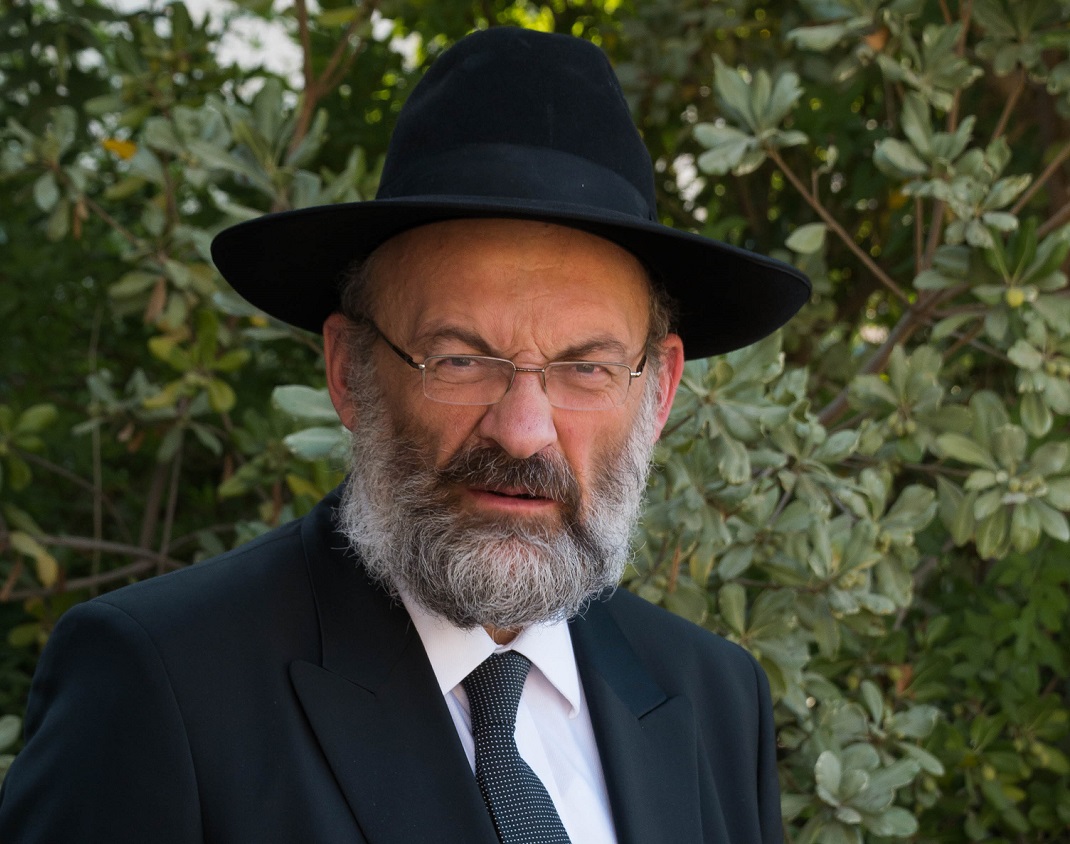Do You Have a Choice?

Mesillas Yesharim writes that the worst thing we can do in life is to live by rote

A Jew must cringe at statements like these. They’re just about as antithetical to Torah as you can get. One of the most basic principles in the Torah is that we are all accountable for our actions, because we have free will. We alone are responsible for our decisions.
But denying responsibility comes in a frum version as well. True, we admit we’re accountable for our decisions. But we often think everything we do is prescribed, and there’s nothing to decide. Taking responsibility means acknowledging I have the freedom to choose between different courses of action, and therefore I’m accountable for my choice.
Stop for a minute and think: When was the last time you really decided something? What decisions did you make today? I don’t mean deciding what to eat for breakfast. If you’re having an ordinary day, you’re probably thinking: “I davened Shacharis, learned a bit, took my kids to school… what was there for me to decide?” Everything we do seems clear-cut. The Shulchan Aruch tells us what to do. Where is there room for an observant Jew to decide anything?
The truth is that we have a large variety of options, totally congruent with the letter and the spirit of the Shulchan Aruch, from which to choose how to fulfill our obligations. But most of the time we only see one way, so there’s nothing to decide. Let me give an example. Let’s say you’re asked to complete a minyan for Minchah. You always daven a 25-minute Shemoneh Esreh. You’re only a few brachos in when you start to sense that the eyes of the other nine people are fixed on you. What do you do? If you’re totally inconsiderate, you keep davening at your normal pace. Otherwise, you frantically speed through the words without any kavanah at all.
“What could I do?” you think. “I had no choice.”
But did you know that Rav Chaim of Brisk was known to daven very quickly? And believe me, he davened well. So why didn’t you choose to daven like him? The real answer is because you never considered the possibility of a tefillah that’s quick yet erlich.
Another example: When learning Gemara, many of us only discuss the sugya with others from our own beis midrash. We have such a clear way of learning; why should we blur our clarity by speaking with others who learn the sugya totally differently? Yet Chazal say, “Who is wise? He who learns from everyone.” We lack the versatility to appreciate that there are different, legitimate ways of learning that might enrich our understanding of Torah. If we were only aware of the array of possibilities available, even in the mitzvos themselves, in many cases we could choose more wisely.
When it comes to raising children, blindness to the spectrum of possibilities can be outright disastrous. We think there’s one objective formula for educating children in the path of Torah. Statements we heard years ago become entrenched in our mind as immutable truths, as if they were halachah l’Moshe miSinai. We use the same approach with each child, at every age, in every circumstance. How should we deal with a child who misbehaves? We whip out the same method every time, not even thinking whether it will be effective in this case, or whether it might even push him away from Torah observance.
Which school should we send him to? We never question the popular assumption that the school with the most frum and prestigious reputation is the best. We may send a mediocre boy off to a yeshivah where he will drown in the masses of more gifted students, and not even entertain the possibility that a smaller, perhaps less prominent yeshivah might be best for his development.
How should one mold his son into a future talmid chacham? It’s self-evident to us that the only way to cultivate his love of Torah is by filling his day with Torah study. Some talmidei chachamim did grow up with Torah alone, but many others did not. When one of my sons, blessed with a keen mind, was in cheder, he was obsessed with the game called “kugelach” (known in Israel as chamesh avanim, “five stones”). Any father with a gifted child is naturally a bit dismayed at seeing him waste away so many hours each day.
But I noticed something that changed my perspective: Over time, he was strengthening his ability to repeat the same activity over and over again without interruption. His games got longer and longer, without one break in his concentration. I realized that in his own way, he was sowing the seeds of his future hasmadah. Later in life, I reasoned, he could take this ability to repeat an activity endlessly and use it for Torah study.
It took time, but he proved me right. Had I not appreciated the possibility of there being alternate, less linear paths to Torah greatness, I would have yelled at him, “Stop wasting your life!” and dragged him to extracurricular learning programs every day. Had I done so, it’s likely that rather than become a masmid, he would come to hate learning Torah, chas v’shalom.
In so many scenarios, we make terrible mistakes, without even realizing that there are alternatives available! So of course we don’t take responsibility for our mistakes. After all, we believe, we only did what we were supposed to. Clearly the outcome was decreed from Heaven, to test us or atone for our transgressions. Sometimes that’s the case. When we carefully consider a problem, to the best of our ability, and seek the counsel of those wiser than us, we’re not to blame if a decision doesn’t work out. But if we just act rashly because we didn’t bother to note what options were available, that’s the epitome of irresponsible living! We have no right to blame anyone else, or Hashem, for our failure to choose.
Mesillas Yesharim writes that the worst thing we can do in life is to live by rote. Someone who doesn’t examine his ways is like a person walking blindfolded at the edge of a cliff. It doesn’t necessarily mean he is full of evil passions and vices. There are many good people with fine middos who never reexamine their ways. They keep going in the same path, repeating their mistakes, without stopping to realize what they’re doing. Some of them never make time to think about their actions. But many people make a cheshbon hanefesh, and yet still they stick to their destructive habits! The reason is that they don’t see they have other options. They never properly decided what to do in the first place, because they thought they only had one option — so there’s no decision to reconsider!
If we want to live responsibly, it’s not enough not to blame others. We need to discover the breadth of possibilities available in so many of our everyday decisions that we never see. When we sit down in the evening to look over our day, let’s try to think creatively. How many ways are there to daven properly? How many ways are there to reprimand a child? How many ways are there to instill in our children the love of Torah?
If we get used to thinking like that, soon we will find that many of our everyday actions that seem so clear-cut are really a crossroads of possible paths. And we, only we, are the ones who can choose which path to take.
Originally featured in Mishpacha, Issue 834.
Oops! We could not locate your form.







